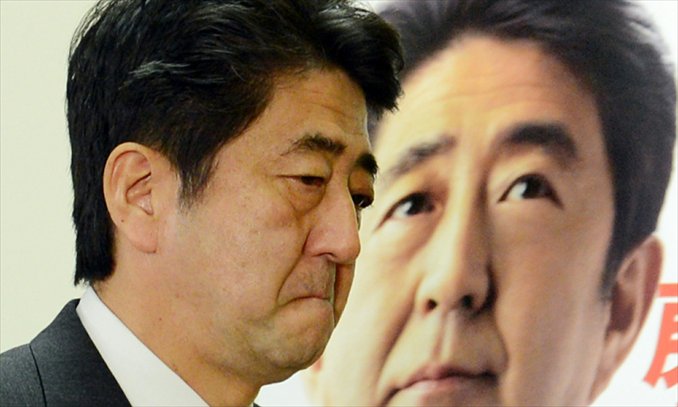China ‘closely watching’ Japan following LDP election win

China said Monday it is "closely watching" over its neighbor Japan's direction after the Liberal Democratic Party (LDP) swept to power and its leader Shinzo Abe vowed there would be no compromise over the Diaoyu Islands issue that has strained Beijing-Tokyo ties in recent months.
China has "noticed the results of Japan's lower house election," said Hua Chunying, a Chinese foreign ministry spokeswoman. "We hope Japan will continue to follow the path of peaceful development and play a constructive role in regional peace, stability and development."
Hua's comments came a day after the LDP, which had ruled Japan for most of the last 50 years before it surrendered power to the Democratic Party of Japan (DPJ) in 2009, won a landslide election victory on Sunday.
The election defeat cost Prime Minister Yoshihiko Noda his DPJ leadership.
Analysts said the election result was more a damning verdict on the chaotic rule of the DPJ than an embrace of Abe's agenda, which includes more aggressive monetary stimulus policies, improving relations with China, and restoring security relations with the US.
"Abe must act quickly and efficiently to win Japanese people's hearts before losing them," said Hu Jiping, head of Japanese Studies at the China Institutes of Contemporary International Relations. "And the election result will enable Abe to do so."
Voter turnout was only about 59 percent, according to an estimate by the Yomiuri Shimbun, one of the lowest in the postwar period.
Abe, 58, who resigned as premier in 2007 citing ill health, has been talking tough in the territorial row with China while vowing to improve relations with Beijing through dialogue.
"The Senkaku islands (the Japanese name for the Diaoyu Islands) are Japan's inherent territory," Abe told the press after the election, according to AFP. "There is no room for negotiation on this point."
But Abe acknowledged that the Tokyo-Beijing relationship is one of the most important bilateral ties for Japan and that the current tension between the two countries also harmed Japan's national interests.
"As long as Abe maintains a communication channel between the two countries' officials, Abe has a chance to mend ties with China," Hu said.
However, others expected a more restive period in the Northeast Asia region with a more conservative Abe as the Japanese leader compared with his previous short tenure.
"There will be unpredictable risks if Abe seeks to be tougher in dealing with China-Japan relations than his predecessors," said Liu Gang, a visiting scholar to Japan.
Abe has said Japan needs to deepen ties with the rest of Asia including India and Australia in the fields of security and energy before starting to work on improving ties with China.
"Japan, which has become used to being the leader of Asia, needs time to adapt to a rising China. The two's confrontation will be no less strong than in the past months," said Wu Huaizhong, a researcher from the Institute of Japanese Studies at the Chinese Academy of Social Sciences.
A South Korean official also called on Monday for Abe to mend strained ties with Japan's neighbors, according to the Yonhap News Agency.
South Korea is reportedly going to present very soon its formal submission defining the outer limits of the continental shelf in the East China Sea to the Commission on the Limits of the Continental Shelf.
China submitted its demarcation plan on Friday. Japan completed the procedure in 2008, but more than half of its claim failed to win UN recognition earlier this year.
The differing definitions of the continental shelf in the East China Sea could stoke more tensions in Northeast Asia in addition to the Dokdo Island and Diaoyu Island disputes, South Korea's Segye Times newspaper said on Sunday.
Agencies contributed to this story
More in Daily Specials